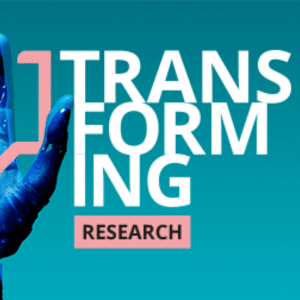
Digital Science Open Principles
Transforming Research
Digital Science exists at the intersection of publicly and privately funded research, by serving universities, funders and governments on the one hand, and commercial research organizations on the other. While we aim for a world in which research can make the biggest difference to all, these principles help to contextualize the work that Digital Science does to support the publicly funded, open research ecosystem.
1. Community ownership: We believe that research outcomes are owned by the global community and should be available to all.
We believe that research is the single most powerful transformative force for the positive development of humanity, and as such, knowledge and research outcomes should be shared for common good. Only by making research, and the metadata that describes research, available to all can society derive maximal benefit. Leading innovation is based on knowledge and research – being able to organize, locate, access and share research is critical as a basis for sustainable innovation. We acknowledge that not all research can be made available straight away due to ethical or practical considerations, but we believe that, consistent with reasonable expectations, the outputs of publicly funded research should be available to all.
At Digital Science, we provide advanced technologies to all that help to locate the right research and provide mechanisms for the community to make research available to the broadest possible audience so that they can discover more and better innovate.
Altmetric and Dimensions are built on a mix of open and licensed data. Dimensions’ free edition and Altmetric free researcher tools ensure that the whole community can benefit from analyses using open and licensed data. Figshare and Symplectic are both key systems for research organizations to collect, enhance and share data from and about their research. Digital Science never asserts ownership of the data added to these systems and always ensures that the community is able to extract their own data from them without friction. Overleaf is a platform for collaborative writing, allowing researchers to express and develop their ideas together, and Writefull brings down barriers between researchers by improving communication through enhancement of language, together helping the community to share and innovate.
2. Participating in open infrastructure: We commit to support the use of open standards and to build, contribute to, and extend open infrastructures.
Research only works if we can collectively contribute and build – that requires shared trust. The adoption of open standards ensures the most efficient flow of data and information to allow the possibility of maximal benefit from data. The use of well-maintained, stakeholder-led, open infrastructures ensures transparency and clarity of provenance, which provides the trust framework to allow the crystallization of benefit.
At Digital Science, we build on open formats, open standards, open data, and include open identifiers in all our products wherever possible. We enhance data to add value to stakeholders across a diverse, global research landscape, while making the open data on which our products are built available back to the community that created it.
Digital Science has been at the forefront of innovation in research infrastructure since its inception. We created GRID, the Global Research Identifier Database, and then made these data available to the community in 2015. We made the licence more permissive (changed to CC0) in 2016 to allow the Research Organization Registry (ROR) to be seeded with these data. The ROR dataset now forms a key part of OpenAlex’s infrastructure, and GRID (with a mapping to ROR) continues to power Dimensions.
The next generation of technologies that develop around the scholarly record will ensure that research is both human- and machine-readable. The infrastructures in which we invest must be open and neutral, allowing both human and machine readability.
3. Stakeholders’ primacy: We believe that stakeholder benefits should be at the forefront.
The aspiration of the global research community has always been the pursuit and sharing of knowledge, with the aim to operate beyond politics and beyond borders. In recent years, it has become clear that, even when global relationships are more strained politically, research relationships transcend artificial barriers.
At Digital Science, we believe that engaging our stakeholders and ensuring that their opinions are represented in our work is critical to creating value as we view research as an ecosystem rather than a “sector” or a “market”. We believe that we can participate positively in the research ecosystem by being innovative and helping stakeholders experiment and increase their level of innovation. Digital Science’s core values:
- Brave in the pursuit of better;
- Always open-minded;
- Collaborative and inclusive;
- From and for the community
are a key articulation of this belief. They are at the centre of everything that we do.
In addition to our ongoing product-feedback processes, regular user days, participation in industry conferences, and direct engagement with the wider research and scientometrics community, Digital Science will be launching a senior advisory board of representatives from different parts of the research ecosystem to help ensure that we continue to listen to, and align with, the goals of the community that we serve.
4. Establishing trust: We believe that a trusted stakeholder in the research ecosystem must be responsible, transparent and sustainable.
In research, as in our increasingly complex world, context is everything. Understanding the provenance of data, understanding the nature of the processing applied to it, as well as its origin, is critical. Transparency is also important in gaining a shared understanding of the resilience and impact of stakeholders in the research ecosystem.
At Digital Science, we have worked to increase the transparency of data provenance through our publication of research that we carry out. In the spirit of always stretching ourselves, we will start publishing an annual report that increases transparency for Digital Science’s stakeholders.
We also carry our research into prospective ways in which we can help the research community – our recent work on the use of machine learning for research classification was shared as a preprint and published through an open access journal; further work on research integrity and papermill detection has been shared through the same approach.



